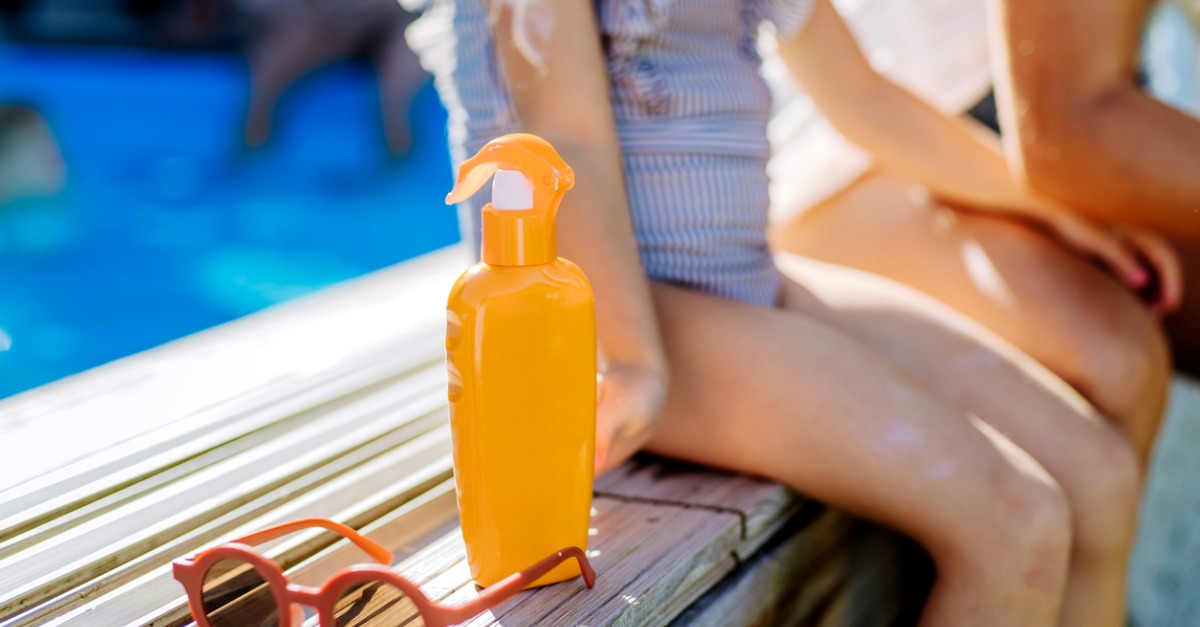If you’ve been paying attention to our dermatologic advice, you know that sunscreen is a year-round necessity. Not only does it play a critical role in protecting you against the UV rays that cause skin cancer, but it also fights cosmetic damage caused by sun exposure, like premature aging and sunspots.
But even if you’re already applying it daily, summer is a great time to check in and make sure you’re using the right sunscreen for your needs. Here are some of our recommendations.
Best Indoor Sunscreens
Should you be wearing sunscreen when you’re indoors? Maybe – especially since only certain types of glass can reduce or eliminate UV rays. You’ll certainly want to wear sunblock if you’ll be in the car or sitting near windows, for example. And realistically, you’ll probably spend at least a little time outdoors on most days anyway.
Even if you’re not exactly the outdoorsy type, an SPF of at least 30 is the minimum recommendation for all sunscreens. But if you don’t need a specialty formula for outdoor sports, for example, you might consider sunscreen that doubles as makeup or skin care. For instance, products from Elta MD offer broad-spectrum protection in a tinted formula to even out your skin tone, while SPF-infused hand creams deliver both hydration and defense against UV rays.
Best Outdoor Sunscreens
All broad-spectrum sunscreen with SPF 30 or higher will offer protection outdoors, too. But certain formulas are better suited for specific activities. For instance, the best sunscreen for outdoor workers – who can’t avoid the highest UV exposure window from 10 am to 4 pm — will be different from those recommended for athletes or beachgoers. Find your formula in the list below.
Best Sunscreen for Outdoor Workers
If you work outdoors during the sun’s peak, you’ll need sunscreen that protects against both UVA and UVB rays. There are only three FDA-approved ingredients that can do so: avobenzone, titanium dioxide, and zinc. Sunscreens with avobenzone are known as chemical formulas since they create a chemical reaction to absorb the sun’s rays, turn them into heat, and release them from your body. Mineral sunscreens, on the other hand, create a physical barrier, using titanium dioxide or zinc to reflect light.
While either chemical or physical formulas will work, be sure to choose a formula with zinc if you go the physical route. It protects against both short-wave and long-wave UVA rays, whereas titanium only protects against short-wave UVA. No matter which formula you choose, set an alarm to reapply every two hours.
Best Sunscreen for Athletes
From surfing and jet skiing to land activities like pickleball, outdoor sports are a great way to spend the summer. While no sunscreen can entirely withstand hours of sweat or water exposure, look for a product labeled “water-resistant” to hold up better against moisture. Firm-forming polymers in these formulas create a light film that repels wetness — but again, you’ll need to reapply it frequently to stay protected. If you’re on the go, you may find that a spray sunscreen like this one from SolRX is easier to apply than a traditional lotion.
Best Sunscreen for the Beach
If you’re heading to the beach this summer, the same factors apply when seeking the best sunscreen: broad-spectrum protection with an SPF of at least 30, along with water resistance if you’ll be swimming or playing sports. Unless you’re staying strictly on the sand, stick with a physical formula, since chemical sunscreens have been linked to coral reef deterioration. Pack the reef- and ocean-friendly lotion from SolRX in your beach bag for protection that won’t harm our marine species.
Schedule Your Annual Skin Exam With Olansky Dermatology & Aesthetics Today
Wearing sunblock is a powerful way to prevent skin cancer, but you’ll still need annual skin exams to look for any irregularities that may need attention. If you’re due for your skin cancer screening or have any other skin concerns, schedule an appointment online or by calling (404) 355-5484.


